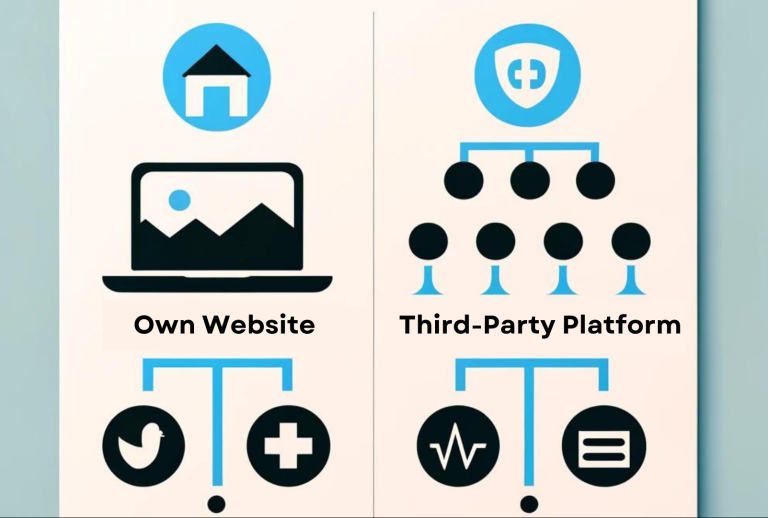Balancing Marketing and Medical Teams
Marketing and medical teams often have distinct priorities and objectives, leading to potential conflicts. Understanding and effectively balancing the needs of both teams is essential for driving innovation, compliance, and ultimately, better healthcare outcomes. Let’s explore the unique requirements of marketing and medical teams within pharmaceutical companies and strategies for harmonizing their efforts.
Marketing Team: Driving Awareness and Adoption
The primary goal of the marketing team in pharmaceutical companies is to promote products effectively, drive brand awareness, and facilitate product adoption among healthcare professionals and consumers. Key needs of the marketing team include:
- Market Research and Insights: Marketing teams rely on comprehensive market research and insights to understand consumer behavior, identify market trends, and uncover unmet needs. Access to accurate and timely data is crucial for developing targeted marketing strategies and campaigns.
- Creative and Strategic Planning: Marketing teams require creative expertise and strategic vision to develop compelling messaging, branding, and promotional materials. Collaborative brainstorming sessions and cross-functional partnerships are essential for generating innovative ideas and executing successful marketing initiatives.
- Multichannel Marketing Execution: With the proliferation of digital channels and platforms, marketing teams must execute multichannel marketing campaigns to reach diverse audiences effectively. From social media and email marketing to traditional advertising channels, a seamless omnichannel approach is necessary for maximizing reach and engagement.
- Metrics and Analytics: Measuring the effectiveness of marketing campaigns is essential for optimizing performance and allocating resources efficiently. Marketing teams rely on robust analytics and metrics to track key performance indicators (KPIs) such as brand awareness, customer acquisition, and return on investment (ROI).
Medical Team: Ensuring Scientific Integrity and Compliance
Contrary to marketing teams, medical teams in pharmaceutical companies focus on ensuring scientific integrity, regulatory compliance, and ethical standards in all aspects of product development and promotion. Key needs of the medical team include:
- Clinical Research and Development: Medical teams are responsible for conducting rigorous clinical research and development to demonstrate the safety, efficacy, and therapeutic benefits of pharmaceutical products. This includes designing and executing clinical trials, interpreting study results, and generating scientific evidence to support product claims.
- Medical Information and Education: Medical teams play a critical role in providing accurate, evidence-based medical information and education to healthcare professionals, patients, and other stakeholders. This includes responding to inquiries, delivering scientific presentations, and organizing educational events.
- Regulatory Affairs and Compliance: Ensuring compliance with regulatory requirements and industry standards is paramount for pharmaceutical companies. Medical teams collaborate closely with regulatory affairs departments to navigate complex regulatory landscapes, obtain product approvals, and maintain compliance with applicable laws and regulations.
- KOL Engagement and Scientific Exchange: Key opinion leader (KOL) engagement is essential for building credibility and fostering scientific exchange within the medical community. Medical teams identify and cultivate relationships with KOLs, facilitate scientific advisory boards, and support medical education initiatives.
Strategies for Balancing the Needs of Marketing and Medical Teams
Achieving synergy between marketing and medical teams requires effective communication, collaboration, and alignment of goals and objectives. Here are some strategies for balancing their needs:
- Cross-Functional Collaboration: Foster a culture of collaboration and mutual respect between marketing and medical teams. Encourage regular communication and cross-functional teamwork to leverage each team’s expertise and perspective.
- Integrated Planning and Execution: Develop integrated marketing and medical strategies that align with overarching business objectives. Ensure that marketing initiatives are based on scientific evidence and adhere to regulatory guidelines, while also considering market dynamics and consumer preferences.
- Education and Training: Provide ongoing education and training opportunities for both marketing and medical teams to enhance their understanding of each other’s roles, responsibilities, and challenges. This will facilitate empathy, mutual understanding, and effective collaboration.
- Compliance Oversight and Governance: Establish robust compliance oversight mechanisms and governance structures to ensure that marketing activities adhere to regulatory requirements and ethical standards. Encourage transparency and accountability at all levels of the organization.
Balancing the needs of marketing and medical teams in pharmaceutical companies requires a holistic approach that emphasizes collaboration, compliance, and alignment of objectives. By fostering a culture of cross-functional teamwork, integrating marketing and medical strategies, investing in education and training, and maintaining rigorous compliance oversight, pharmaceutical companies can optimize their efforts and drive innovation while upholding scientific integrity and ethical standards.






